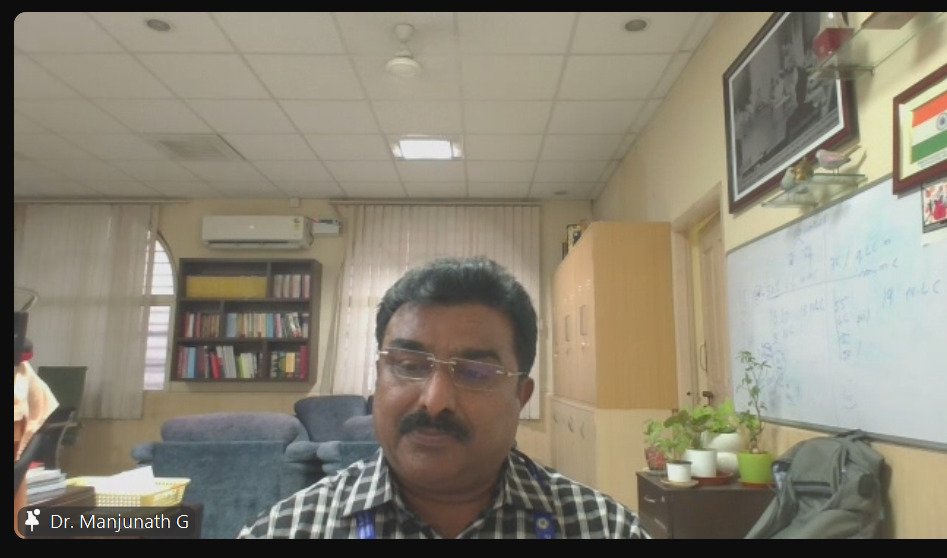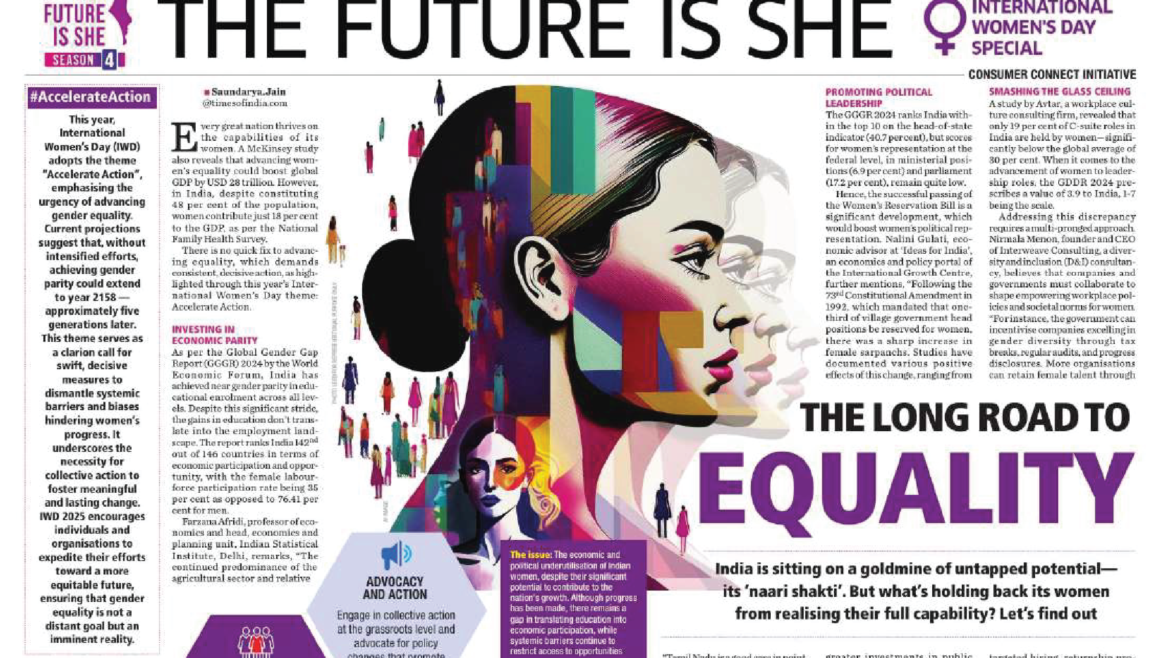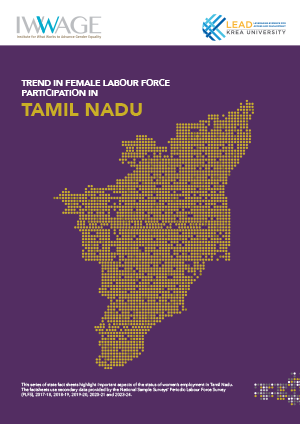Panel Discussion: Propelling India’s Care Economy – Achievements, Challenges, and Strategies for the Future
Panel Discussion: Propelling India’s Care Economy – Achievements, Challenges, and Strategies for the Future
On 10 March 2025, IWWAGE hosted a compelling panel discussion titled “Propelling India’s Care Economy: Achievements, Challenges, and Strategies for the Future” at the NGO Forum of the 69th Session of the Commission on the Status of Women (CSW69). The session convened State representatives, CSO partners, and global experts to explore India’s progress in implementing the Beijing Declaration commitments, with a sharp focus on the care economy.
Key Highlights:
Smt. Smriti Sharan, Joint Secretary, Ministry of Rural Development, Government of India highlighted the disproportionate care burden on women, noting that globally, women spend 2.5 times more on unpaid care work than men. Citing the UN Gender Snapshot Report 2023, she warned that by 2030, over 340 million women and girls could be living in extreme poverty, with 1 in 4 facing food insecurity. She commended GoI initiatives such as DAY-NRLM, MGNREGA, and ICDS, which support women’s livelihoods while providing care assistance. However, she stressed the need to expand and scale up these services. Sharan also advocated for greater convergence between national and state-level programmes, referencing Karnataka’s Koosina Mane scheme, which integrates Panchayati Raj and MGNREGA to offer childcare infrastructure for working mothers. She further emphasised the role of technological innovations in data collection and monitoring to improve care services and identify best practices.
Dr. discussed the role of legislation in enhancing care infrastructure, highlighting the Factories Act, which mandates crèches in establishments with 30 or more employees. He also referenced the Building and Other Construction Workers Act, which allocates funding for setting up crèche facilities at work sites. He announced that Karnataka would soon introduce a menstrual leave policy for women employees in the formal sector—a progressive step towards creating more gender-inclusive workplaces. Dr. Manjunath Gangadhara, Additional Labour Commissioner (Industrial Relations) Government of Karnataka also stressed the need for redistributing care responsibilities through social reforms, advocating for synergies between CSO initiatives and government schemes.
Kelsey Harris, Senior Policy Analyst, Center for Global Development called for increased public investment in equitable and quality care services. She recommended a goal of allocating 3–10% of national incomes to public care services by 2030, with 1% of GDP dedicated to pre-primary education and 10% of education budgets allocated to early childhood learning. She emphasised the need for transparent public data on care spending, particularly for children under three and long-term care services, which are often under-reported. Kelsey also highlighted the importance of strengthening social protection systems, especially for informal workers, people with disabilities, and the self-employed. She urged governments to aim for 75% population coverage by 2030, ensuring financial security and access to quality care.
Gala Díaz Langou, Executive Director, CIPPEC shared Argentina’s experience in reducing care burdens through increased access to education. She noted that the country saw a 35% drop in fertility rates between 2014 and 2022, largely due to improved education reducing teen pregnancies and, consequently, care responsibilities for young women. She also showcased Colombia’s Manzanas del Cuidado programme, which offers free, block-level care services to caregivers. These spaces provide education, training, healthcare, and mental health support, enabling caregivers to access economic and educational opportunities. Gala further highlighted Mexico’s Utopias model, which integrates healthcare, skilling, and education services for care receivers, creating a comprehensive care ecosystem.
Sumitra Mishra, CEO, Mobile Creches emphasised the need for granular, community-level data and scalable pilot programmes to shape effective care policies. She highlighted the growing involvement of philanthropic foundations in funding large-scale pilots on rural childcare, citing initiatives in Bihar (Jeevika platform) and Karnataka, where SHG models are being used to experiment with care services. Sumitra also stressed the lack of standards and regulations in the private sector for care facilities, calling for the introduction of a national registry for crèches. She urged corporates to integrate childcare into their ESG mandates, committing funds towards care infrastructure. She concluded by highlighting the importance of community trust-building, noting that even the poorest families would not use childcare services without trust and confidence in their quality.
The panel concluded with a powerful call to action: strengthening care systems through policy reforms, increased public investment, and cross-sector collaboration is essential to ensuring women’s full and equitable participation in the economy.







































































